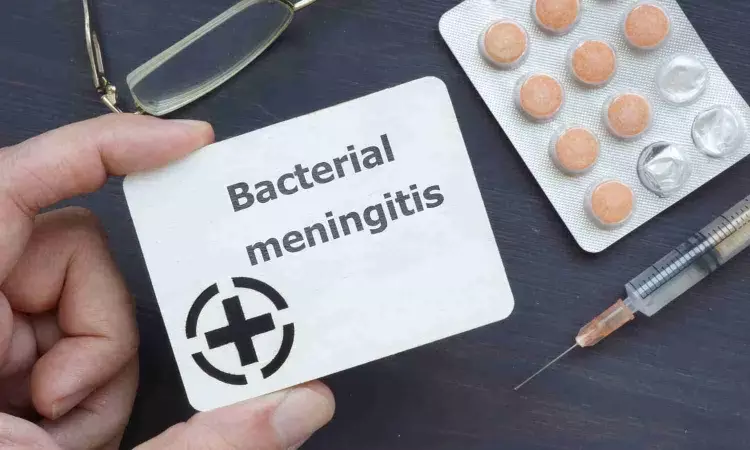- Home
- Medical news & Guidelines
- Anesthesiology
- Cardiology and CTVS
- Critical Care
- Dentistry
- Dermatology
- Diabetes and Endocrinology
- ENT
- Gastroenterology
- Medicine
- Nephrology
- Neurology
- Obstretics-Gynaecology
- Oncology
- Ophthalmology
- Orthopaedics
- Pediatrics-Neonatology
- Psychiatry
- Pulmonology
- Radiology
- Surgery
- Urology
- Laboratory Medicine
- Diet
- Nursing
- Paramedical
- Physiotherapy
- Health news
- Fact Check
- Bone Health Fact Check
- Brain Health Fact Check
- Cancer Related Fact Check
- Child Care Fact Check
- Dental and oral health fact check
- Diabetes and metabolic health fact check
- Diet and Nutrition Fact Check
- Eye and ENT Care Fact Check
- Fitness fact check
- Gut health fact check
- Heart health fact check
- Kidney health fact check
- Medical education fact check
- Men's health fact check
- Respiratory fact check
- Skin and hair care fact check
- Vaccine and Immunization fact check
- Women's health fact check
- AYUSH
- State News
- Andaman and Nicobar Islands
- Andhra Pradesh
- Arunachal Pradesh
- Assam
- Bihar
- Chandigarh
- Chattisgarh
- Dadra and Nagar Haveli
- Daman and Diu
- Delhi
- Goa
- Gujarat
- Haryana
- Himachal Pradesh
- Jammu & Kashmir
- Jharkhand
- Karnataka
- Kerala
- Ladakh
- Lakshadweep
- Madhya Pradesh
- Maharashtra
- Manipur
- Meghalaya
- Mizoram
- Nagaland
- Odisha
- Puducherry
- Punjab
- Rajasthan
- Sikkim
- Tamil Nadu
- Telangana
- Tripura
- Uttar Pradesh
- Uttrakhand
- West Bengal
- Medical Education
- Industry
Bacterial meningitis causes permanent disability out of one in three children for life

Bacterial meningitis is a life causing disease. It is more common in infants under 1 year of age and people ages 16 to 21 especially college students living in dorms or other close quarters are at increased risk.
One in three children who suffer from bacterial meningitis live with permanent neurological disabilities due to the infection. This is according to a new epidemiological study led by Karolinska Institutet and published in leading medical journal JAMA Network Open.
For the first time, researchers have identified the long-term health burden of bacterial meningitis. The bacterial infection can currently be cured with antibiotics, but it often leads to permanent neurological impairment. And since children are often affected, the consequences are significant.
"When children are affected, the whole family is affected. If a three-year-old child has impaired cognition, a motor disability, impaired or lost vision or hearing, it has a major impact. These are lifelong disabilities that become a major burden for both the individual and society, as those affected need health care support for the rest of their lives," says Federico Iovino, associate professor in Medical Microbiology at the Department of Neuroscience, Karolinska Institutet, and one of the authors of the current study.
By analyzing data from the Swedish quality register on bacterial meningitis between 1987 and 2021, the researchers have been able to compare just over 3,500 people who contracted bacterial meningitis as children with just over 32,000 matched controls from the general population. The average follow-up time is over 23 years.
The results show that those diagnosed with bacterial meningitis consistently have a higher prevalence of neurological disabilities such as cognitive impairment, seizures, visual or hearing impairment, motor impairment, behavioral disorders, or structural damage to the head.
The risk was highest for structural head injuries - 26 times the risk, hearing impairment-almost eight times the risk, and motor impairment - almost five times the risk.
About one in three people affected by bacterial meningitis had at least one neurological impairment compared to one in ten among controls.
“This shows that even if the bacterial infection is cured, many people suffer from neurological impairment afterwards,” says Federico Iovino.
With the long-term effects of bacterial meningitis identified, Federico Iovino and his colleagues will now move forward with their research.
“We are trying to develop treatments that can protect neurons in the brain during the window of a few days it takes for antibiotics to take full effect. We now have very promising data from human neurons and are just entering a preclinical phase with animal models. Eventually, we hope to present this in the clinic within the next few years," says Federico Iovino.
Reference:
Mohanty S, Johansson Kostenniemi U, Silfverdal SA, et al. Increased Risk of Long-Term Disabilities Following Childhood Bacterial Meningitis in Sweden. JAMA Netw Open. 2024;7(1):e2352402. doi:10.1001/jamanetworkopen.2023.52402.
MSc. Neuroscience
Niveditha Subramani a MSc. Neuroscience (Faculty of Medicine) graduate from University of Madras, Chennai. Ambitious in Neuro research having worked in motor diseases and neuron apoptosis is interested in more of new upcoming research and their advancement in field of medicine. She has an engrossed skill towards writing and her roles at Medical dialogue include Sr. Content writer. Her news covers new discoveries and updates in field of medicine. She can be reached at editorial@medicaldialogues.in
Dr Kamal Kant Kohli-MBBS, DTCD- a chest specialist with more than 30 years of practice and a flair for writing clinical articles, Dr Kamal Kant Kohli joined Medical Dialogues as a Chief Editor of Medical News. Besides writing articles, as an editor, he proofreads and verifies all the medical content published on Medical Dialogues including those coming from journals, studies,medical conferences,guidelines etc. Email: drkohli@medicaldialogues.in. Contact no. 011-43720751


